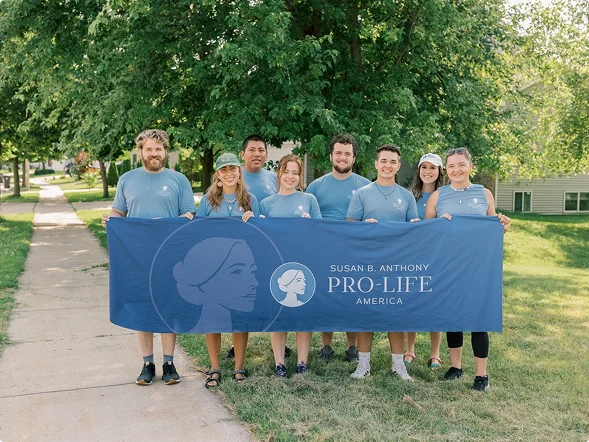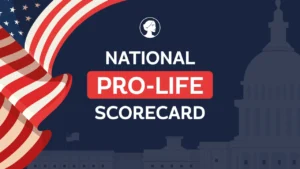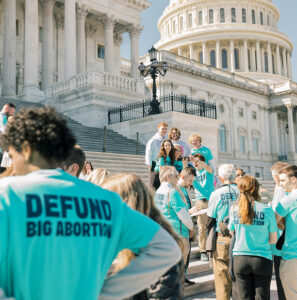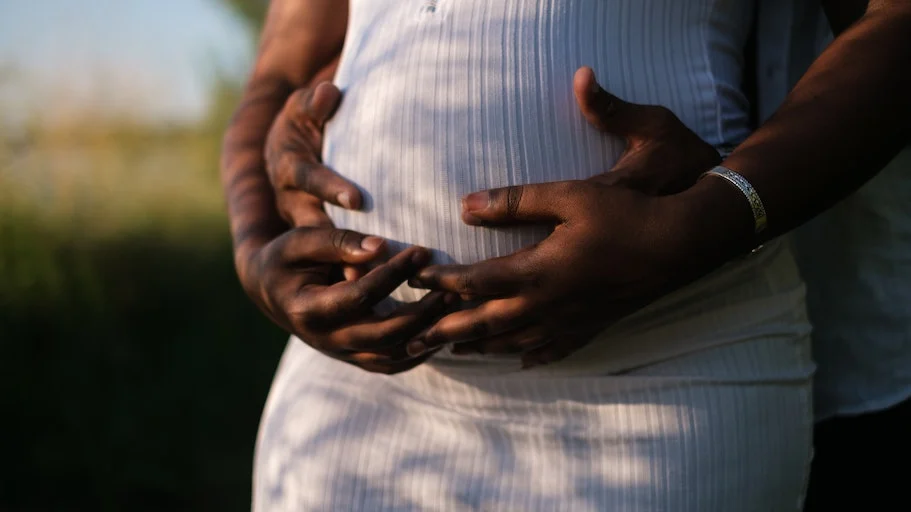No, pro-life laws aren’t to blame for “maternity care deserts.”

Leave it to corporate media to make the simple complicated and the complicated simplistic.
Once again, NBC is pushing a debunked claim that pro-life protections are responsible for maternity wards closing (specifically, Bonner General in Sandpoint, Idaho, which discontinued services back in March).
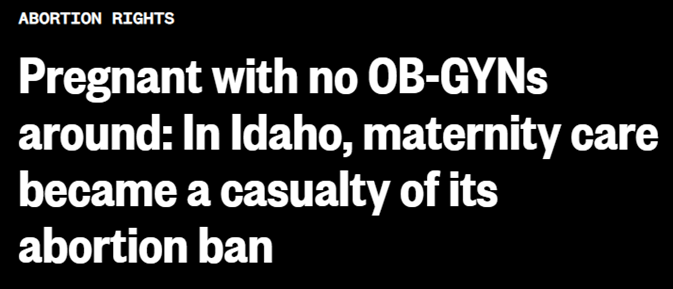
“Maternity care deserts” are defined as “counties where there’s a lack of maternity care resources, where there are no hospitals or birth centers offering obstetric care and no obstetric providers.”
This topic is worthy of deeper analysis. Unfortunately, NBC’s latest pro-abortion jeremiad doesn’t provide it.
The article is chock-full of scary statistics and anecdotes, but there is good reason to be skeptical. Pro-abortion studies have found approximately 90% of U.S. OB-GYNs don’t commit elective abortions.
When there are no pro-life laws available to scapegoat, a few common themes emerge:
- Aging populations.
- Declining birthrates.
- Persistent staff shortages.
- Lack of state support/funding.
- Low reimbursements.
- Pressure to cut costs.
Washington Examiner’s Tim Carney wrote almost seven months ago:
Maternity wards have been closing all over the United States for more than a decade, primarily for a simple reason: People have been having fewer babies every year since 2007…Next door to Idaho, in completely abortion-friendly Washington state, Astria Toppenish Hospital closed its maternity ward three days before Christmas last year. This closure was the centerpiece in an exhaustive New York Times feature on rural hospitals closing their maternity wards nationwide. The word “abortion” doesn’t appear even once in this piece.
From Bonner General Hospital’s March 2023 press release:
Loss of Pediatrician coverage – Without pediatrician coverage to manage neonatal resuscitations and perinatal care, it is unsafe and unethical to offer routine Labor and Delivery services; despite our best efforts over months of negotiations. Our inpatient pediatric services will no longer be consistent and reliable in May. BGH has reached out to other active and retired providers in the community requesting assistance with pediatric call coverage with no long-term sustainable solutions. Our low patient volume is insufficient to attract candidates for pediatric hospitalists, and we cannot afford to continue having locum tenens physicians.
Volumes and changing demographics – The number of deliveries at BGH has continued to decrease yearly. We delivered 265 babies in 2022 and admitted less than ten pediatric patients for other reasons. There are many reasons, including a nationwide decrease in births, an older population moving to Bonner County, and Kootenai Health having a new, updated unit with Neonatologists and OBs in-house 24/7.
NBC relegated these reasons to a single line 18 paragraphs in.
More than 100 rural hospitals in the U.S. have closed entirely since 2005, with trends worsened and accelerated by Covid.
Many pro-life states happen to include large rural areas. But in their abortion narratives, the media persistently downplay closures in states with few or no limits on abortion.
Compact magazine covered the end of labor and delivery at Windham Hospital in Connecticut, which already shuttered its ICU years prior, and its national implications:
In public filings, Windham explained that in 2015, a local OB-GYN group stopped delivering at the hospital. After that, the number of births at the hospital dropped significantly, to 58 when the maternity ward closed in 2020, down from 376 in 2014…The Covid pandemic appears to have been the tipping point for the closure of Windham’s labor and delivery unit. Connecticut saw three other maternity-ward closures or attempted closures during 2020 and 2021.
That article concluded, “The future of Connecticut’s health system, it appears, lies not in birthing babies, but caring for the elderly.”
About 60 paragraphs in, NBC concedes:
The month Bonner General made its announcement, another Idaho hospital, Valor Health, announced it was discontinuing labor and delivery services because of staff shortages, declining births and financial difficulties. A hospital in Oregon stopped providing obstetric services in August, as did one in Tennessee this month and four hospitals in California so far this year.
That’s not going to look good on a billboard.
When UMass Memorial Health closed its maternity unit in Leominster, where about 75% of patients are Medicaid-insured, last month, the Massachusetts Nurses Association pointed in a clear direction: Governor Maura Healey, a pro-abortion Democrat.
“We are deeply disappointed that the governor and her administration has failed to intervene to protect the most vulnerable mothers and newborns throughout all of Worcester County,” said nurses association President Katie Murphy in a prepared statement.
Murphy didn’t stop there, stating the nurses association “expected more from this administration.” She cited a recent DPH report that shows Massachusetts faces a higher rate of labor and delivery complications, especially in marginalized communities like those served by the Leominster unit.
Murphy also mentioned Healey’s recent visit to the Leominster maternity unit and storm-ravaged Leominster. Those visits, said Murphy, gave nurses the impression that the governor sympathized with those who felt the unit must remain open.
Media blackout of young mom’s abortion death
Major outlets lack similar concern about shipping abortion pills to women in rural communities with long drives to the nearest hospital.
As Dr. Ingrid Skop, a practicing Texas OB-GYN with 30 years’ experience, wrote in April, “I’ve personally treated many women for complications from the abortion pill (mifepristone and misoprostol), including performing a recent emergency surgery on a woman who bled for two months after receiving these drugs.”
Recently it was revealed that, in September 2022, a Nevada woman died of sepsis less than a week after a mifepristone-and-misoprostol-induced abortion at Planned Parenthood. A wrongful death lawsuit filed by the family of Alyona Dixon indicates that the 24-year-old mother went to two different hospitals, suffering bleeding, sharp abdominal pain, nausea and vomiting before being transferred to a third hospital and finally succumbing. Yet Planned Parenthood was not named as a defendant, and the complaint simply states that she was “appropriately counseled” on the risks of abortion pills and sent home.
As we know, the abortion industry deems it appropriate to lie to women – telling them abortion pills are “safer than Tylenol” – and to encourage them to hide their abortion from emergency room doctors.
If there were any way to blame pro-life laws, no doubt Alyona Dixon’s tragic death would be front-page news. As it is, Nevada lacks virtually any protections for babies or women, and search results reveal a near-total media blackout.
In July, The Washington Post – which was awarded a Pulitzer Prize for its overwhelmingly negative coverage of the abortion landscape after Dobbs – uncritically described the practice of mailing abortion pills into states with protective laws as legal (it’s not). A search for Alyona Dixon’s name this week turned up zero results.
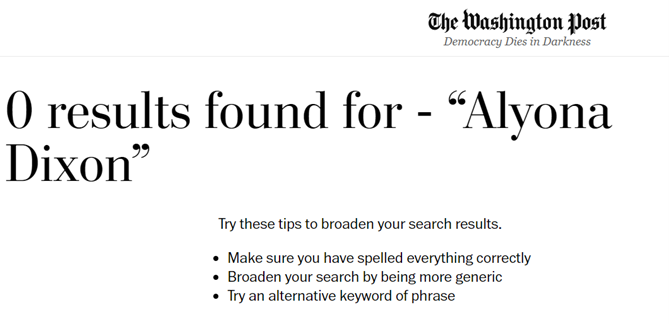
Meanwhile, California’s Governor Gavin Newsom has signed a law to shield anyone who sells abortion pills to buyers in pro-life states – even to minors without their parents knowing – from accountability, and New York City Mayor Eric Adams is plowing ahead with a plan to push mail-order abortion pills over the phone and internet. Every American who cares about women’s health and rights should be alarmed.
The lack of adequate maternal care in parts of the country is a legitimate problem – one every state should work to address, not by playing politics and looking for easy scapegoats.
- West Virginia, which protects babies throughout pregnancy in the law, will no longer make birthing centers jump through government hoops to prove their services are needed – clearing the way for more to open (they still must be licensed). WSAZ notes that home births and other births outside hospital settings are on the rise, and that a five-year federal study showed birth centers could significantly reduce preterm, low-weight and cesarean births for Medicaid-enrolled women.
- Iowa launched the MOMS program. As Governor Kim Reynolds explained in her 2023 Condition of the State address, “When fully operational, this statewide network of nonprofits will connect women with pregnancy support services, including safety net resources, housing assistance, and recovery and mental health treatment.”
- Nebraska will extend Medicaid coverage for moms to 12 months after birth, Gov. Jim Pillen announced.
- Mississippi launched MAMA.MS.GOV to help moms quickly access health care, food and clothing, safety and shelter, jobs and job training, education, child care, and other public and private resources in the state.
Pro-life lawmakers acknowledge there’s much room for improvement. What they refuse to do is throw the baby out with the bathwater.
Add Your Name to Say You Stand for LIFE
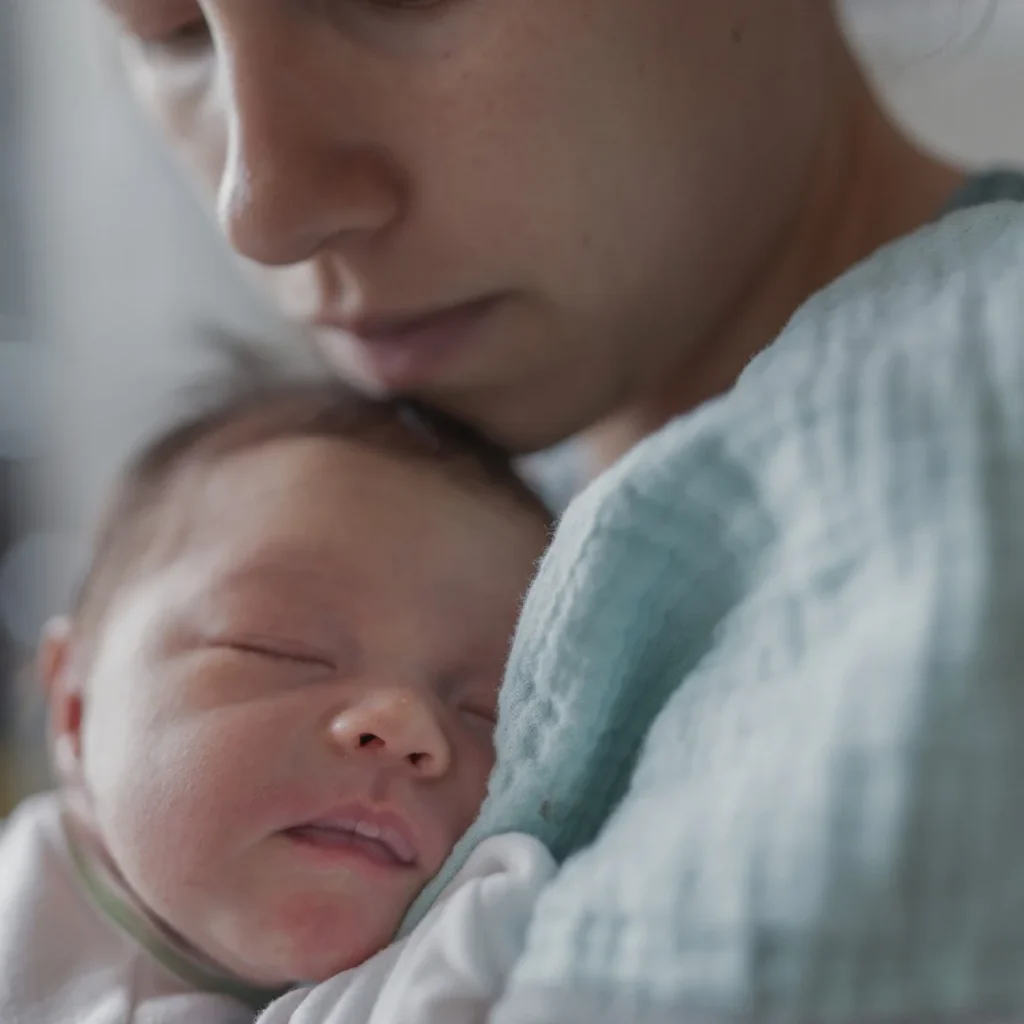
When the U.S. Supreme Court overturned Roe v. Wade, our movement was given a historic opportunity. But the battle for life became much more difficult.
Add your name with thousands of others who are committed to protecting mothers the right to life for innocent unborn children.
Add My Name
